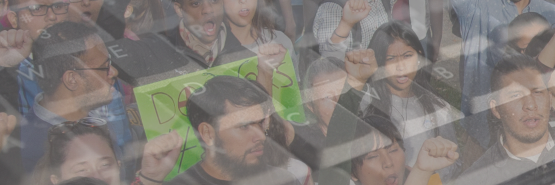The explosive coverage of the killing in Atlanta, Georgia of several help workers who were Asian has underscored some ugly truths about this society while giving us the opportunity to explore the “lateral racism” used to divide and more deeply oppress us.
Part of the problem is talking about all this is that we don’t really know how. We don’t have the necessary practice because we’re afraid to have this conversation inside our movement. In fact, I’ve been in spaces where people actually deny that there is racism amongst people of color.
Maybe it’s that activists don’t experience it. We did once; I certainly did from black leaders when I first start working in this movement. When I encounter it from black people now, maybe those experiences trigger my reactions. I do know that black people with whom I work have worked very hard to confront biases and divisive perspectives and sought a more inclusive approach to other POC communities.
But in these communities themselves, filled with non-activists and people with little political experience, later racism reigns. Many of my latin neighbors (including Puerto Ricans and Dominicans) express a virulent disdain for U.S.-based black people. I make the geographical point because many Puerto Ricans and most Dominicans I know are black. All people from the Carribbean are of African heritage, after all. But you wouldn’t know it from speaking to some of them.
And, when it comes to Asian people, my people and almost every community of color I come in contact with other than Asian simply harbors enormous prejudices about Asian people. They are, the bias explains, the hard-working, law-abiding, “safe” people of color you would want in your neighborhood.
Among capitalism’s greatest crimes and one of its most effective tools of defense is to set people of color against each other. We’ve all experienced its nasty outcomes — the cross-blame, the biased attitudes, the ugly and often openly racist way we refer to each other.
In part, it may be competition for the crumbs: who’s going to get the crap racism leaves for non-whites. It’s also ignorance about our histories and how those are shared and the understanding of our shared powerlessness which can only be overcome with an empowering unity.
Our movements may not mention this reality very much but they are, in fact, taking it on through shared leadership, trainings and analysis that (finally!!!) draws on our common pain in this very racist society. But still, I don’t think it’s reached our communities as it simply must if we are to contribute to the massive project of transforming this dying, limping and increasingly dangerous society.
So I think our task, added to the list of them we already have, must be to openly talk about it and to make a priority the understanding of that common position and that very important shared history.
No community of color — none! — has developed without contributing interaction with other communities of color. Examine that history and make this historic collaboration part of our teaching of it.
That way, we make it part of our future and we give ourselves a shot at having a future.
